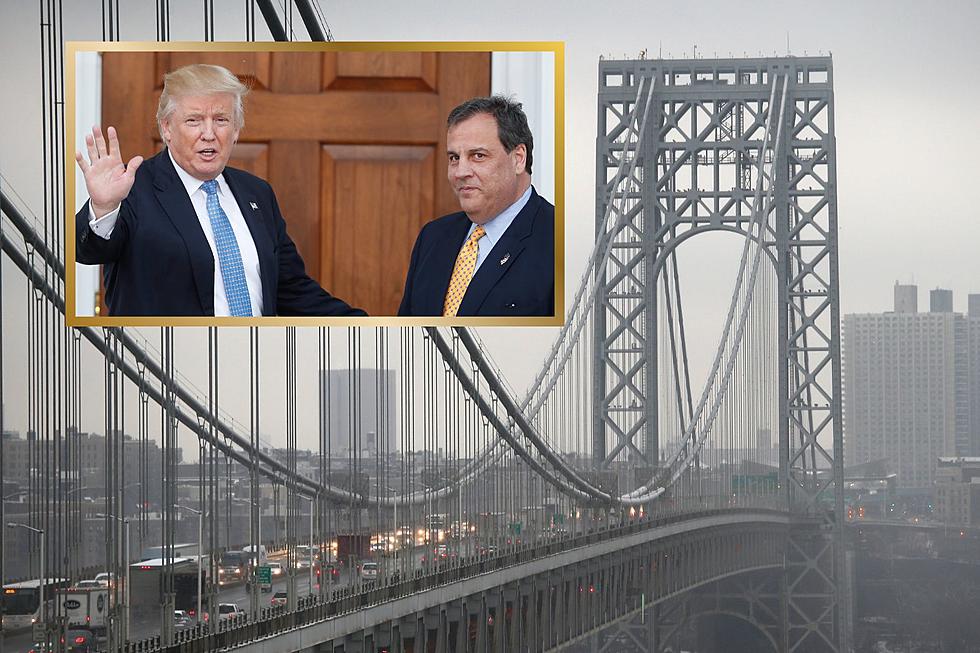
Christie: Here’s why I upped the ante on PARCC
Like more than 1 million school kids around New Jersey, Gov. Chris Christie headed back to school Tuesday – to sign a few laws and, in response to a question, explain why his administration is upping the stakes for standardized tests as they relate to teacher evaluations.
Christie stopped by Caldwell’s Grover Cleveland Middle School to announce he had signed six bills into law and vetoed another, with conditions, that would allow “class three” special police officers to provide security at K-12 schools and county colleges.
None of the new laws are particularly controversial, as evidenced by passing by a combined vote of 677-17. The more interesting details from the longer-than-expected question-and-answer period that followed, during which Christie was asked about the Department of Education last week increasing the importance of students’ scores on the Partnership for Assessment of Readiness for College and Careers exams to determining a teacher’s tenure status.
Under a 2012 law, standardized test scores are considered in assessing teachers. It originally counted for 30 percent of a teacher’s evaluation, but it was temporarily lowered to 10 percent after the first PARCC administration stirred strong opposition and a wave of parents opting their children out of taking the exams. But Christie said “everyone’s now adjusted” to the PARCC and that it’s time to restore the exam’s weight in assessing teachers.
“That’s 30 percent. That means 70 percent of a teacher evaluation is not on test scores,” Christie said. “In-classroom observation, children’s grades and progress are 70 percent of a teacher’s evaluation. Thirty percent is the objective test. I think that’s an appropriate weighting.”
“I think that’s a fair way to evaluate teachers,” Christie said. “Test scores have to play some role in it. And they do. They play a minority role.”
The New Jersey Education Association criticized the Christie administration for boosting the PARCC-dependent share of evaluating teachers, though the 2012 teacher-tenure law says the weighting is to be decided each year by Aug. 31 by the Department of Education. The NJEA is urging the Legislature to change the law giving the administration that latitude.
Battles between Christie and the NJEA are common and date to his 2009 run for governor. They’re currently in court fighting over an oft-scuttled vote on making money-saving changes to teachers’ health plans, and Christie on Tuesday alluded to ‘The Godfather’ series in going after the union.
“I’m fighting for kids – the potential of kids, not the comfort of adults. And that’s what we all should be fighting about,” Christie said. “And I could tell you this: That’s what most teachers care about. Most teachers I meet, that’s what they care about. But they whisper it to me. They can’t say it out loud. Because the NJEA is New Jersey’s version of the Corleones.”
NJEA President Wendell Steinhauer dismissed what he called Christie’s rambling attack.
“Chris Christie’s obsessive focus on NJEA shows that we are making a difference,” Steinhauer said. “We are proud that our advocacy is so threatening to Chris Christie.”
On other education-related topics, Christie:
- Indicated he’ll decide in around 80 days whether a salary cap on superintendents will be extended, revised or allowed to expire; he created it in 2010, and it expires Nov. 25. “I will be discussing that with the education commissioner and will be making a decision at the time that the sunset is imminent.”
- Signed a bill into law providing state aid for security services and equipment for nonpublic school students of up to $75 per pupil a year. It’s currently provided through the state budget, though not guaranteed in a separate law. “The safety of children no matter where they go to school in our state, whether it’s a public, private or parochial school, is the responsibility of government.” Left unsaid: Through a line-item he veto, in June he reduced this year’s funding from $75 to $50 per pupil. And then he impounded the $7.5 million appropriation due to a lack of consensus on how to save money on public workers’ health benefits.
- Signed a bill into law requiring New Jersey’s curriculum standards to be reviewed to ensure up-to-date instruction on preventing alcohol and drug abuse. “We need to be talking about substance abuse unfortunately in our society today from a very, very early age. We need to be not only talking about it in school, obviously, we need to be talking about it at home.”
- Enacted a law limiting expulsions and suspensions for students in preschool through Grade 2.
- Conditionally vetoed a bill allowing retired police officers to provide security at public schools, nonpublic schools and county colleges. He said he supports the purpose of the bill but that the special officers should be required to complete school resource officer training tailored to the types of issues that routinely arise in school settings.
More from New Jersey 101.5:
More From New Jersey 101.5 FM









